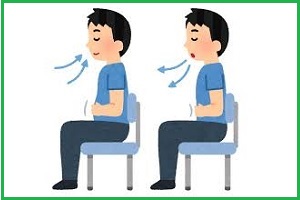By Setareh Kiumarsi
Are caffeine-rich foods and drinks a major part of your life? Are you one of those die-hard fans of coffee or tea? Does the aroma of coffee make you feel intoxicated? Do you even wonder how it’s possible to start the day without it? And yet…
Many people whose bodies are used to daily caffeine will experience symptoms if they go just one day without it. Symptoms like headaches, irritability, low mood, fatigue, drowsiness, depression, or sudden anger and agitation.
And what else?
A lot of people also experience constipation, loss of appetite, a feeling of fullness or heaviness in the stomach, and significantly slowed digestion when they don’t consume caffeine.
Why does this happen?
From an Ayurvedic perspective, caffeine-containing foods and drinks; such as coffee, instant coffee, black tea, green tea, and cocoa, are considered to be very hot and dry in quality. Hot and dry substances stoke the digestive fire and create downward movement in the digestive tract. All stimulating substances; like alcohol, cigarettes, marijuana, and even narcotics, share this same energetic quality of being very hot and dry.
So when you wake up and drink caffeine in the morning, it’s like lighting a temporary artificial fire inside your digestive system. The undigested mucus and leftover food from the previous day begin to break down. This triggers movement in the intestines, your bowels are stimulated, and your appetite returns within an hour or two. Gradually, your digestive system gets used to this artificial fire that you spark several times a day, and it starts thinking, “Why bother doing anything myself?”
It becomes lazy. It slowly reduces its own production of bile and digestive enzymes and becomes dependent on caffeine just to perform its basic daily functions.
Your digestive system becomes addicted to caffeine.
Once that addiction is in place, your gut can no longer digest or eliminate properly on its own. And if it doesn’t get caffeine one day, you’ll notice symptoms like sluggish digestion, heaviness, and constipation.
On the other hand, as I mentioned in a previous post, the digestive system—especially the small intestine—is often called our second brain. It’s full of receptors for brain hormones. When it’s clean, those receptors are active, brain chemicals are released properly, and your mental chemistry stays in balance. But when poor eating habits and lifestyle choices cause the gut to fill with toxins and undigested mucus, those hormone receptors shut down. Key hormones like serotonin stop releasing properly, and you end up feeling depressed, tired, sluggish, and sleepy.
These days, people are constantly looking for quick fixes; something fast to help them feel better right away. So they reach for stimulants like caffeine, alcohol, cigarettes, or marijuana. These substances temporarily light a huge fire in the digestive tract. Intestinal movements are stimulated, toxins burn away quickly, the hormone receptors in the gut are reactivated, serotonin is released, and the person feels energetic, upbeat, and cheerful; for a little while.
So, if caffeine smells amazing and seems to make everything easier, why quit?
Because every stimulant comes with side effects. Like what?
As I mentioned, caffeine is extremely hot and dry. Every time you drink a cup of coffee or strong black tea, it’s like you’re lighting a massive fire inside your gut—like eating a whole bowl of chili flakes. That big fire might digest the leftover mucus, but it also destroys your healthy gut mucus. Over time, it creates chronic dryness not only in the digestive tract, but throughout the body. And what comes next? Conditions like stomach ulcers, intestinal inflammation, chronic neck and shoulder pain, and more.
And there’s more.
That artificial fire also overstimulates the hormone receptors in your small intestine, temporarily lighting up your world, giving you confidence and energy. But when the effect wears off, it leaves you overstimulated and more likely to react with anger, frustration, or irritability. And if one day you don’t have caffeine, your “second brain” freezes up; your digestion slows, your mind fogs, and you’re stuck with headaches, fatigue, and restlessness.
Your gut becomes accustomed to receiving a big fire every single day. It becomes sluggish, your metabolism slows down, and the addiction to caffeine starts taking its toll. Without it, your digestion won’t function properly, food just sits in your stomach, you feel heavy, bloated, and you lose your appetite.
So what do you think a life without caffeine would look, taste, or feel like? Are you curious to try it? In the next article, I’ll guide you through the proper steps for easing into a caffeine-free life.
Stay tuned—and stay full of health.
Please be sure to credit the author, Setareh Kiumarsi, when sharing or republishing this article, which was written with love and the hope of well-being for all.







